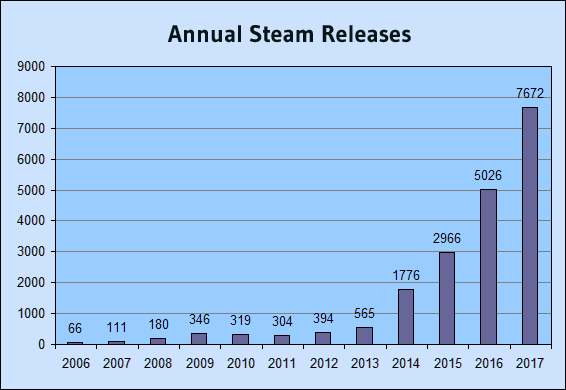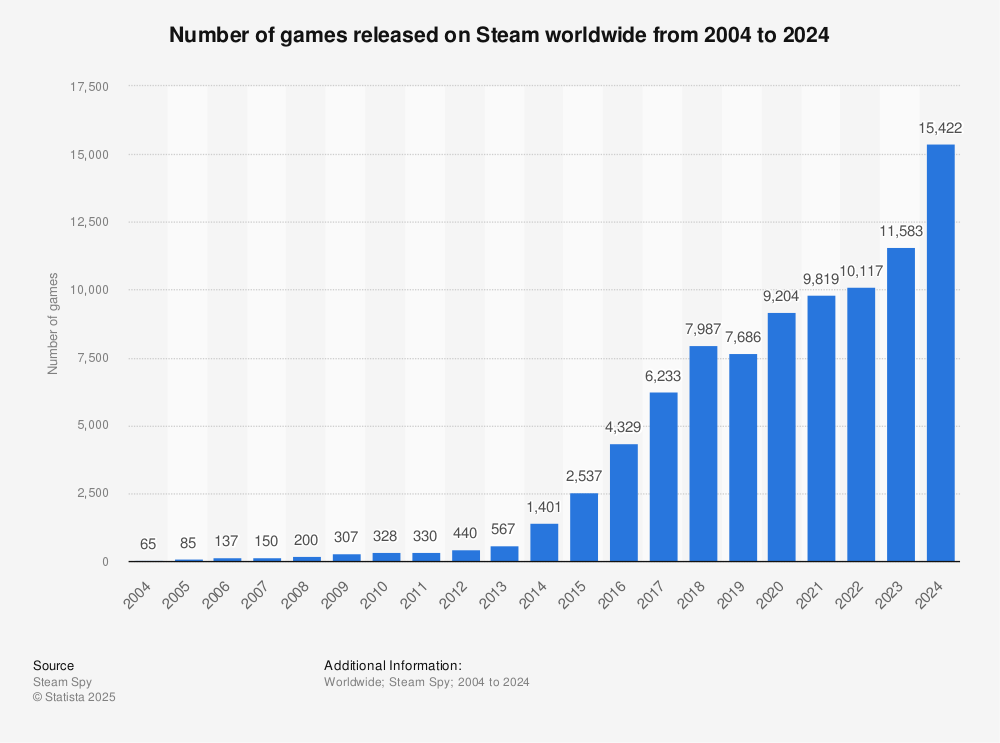HentaiWriter
Future Fragments

- Joined
- Jun 19, 2015
- Messages
- 314
What might happen in the industry is that instead of gigantic studios with people for every single specialist job possible (ex. someone whose sole job is just to design the logos for magazines in the game world), we might trend towards a market where smaller studios with less amounts of people that are doing a wider range of skills ends up being the norm.
Think about it salary-wise; if you have 100 people getting paid within a given range, but most of them are extreme specialists, and you cut that down to 10 people who are now each doing 10 of those specialist jobs each, you've just saved 90% of your income in one shot (and even if you pay them somewhat more, you'll end up still saving lots).
With how powerful a lot of software tools are becoming, it's automating and speeding up a lot of tasks that originally took excessive amounts of time, which is what's making stuff like that possible. All three of the games we're working on, for instance, have teams of only 3-4 people each, with all audio paid flat rates as we commission it (for music, SFX, and voice acting). Each member of the team has their specialty, sure (on a 3 person team, that's programming, art, and writing respectively) but each of us also contributes in extra jobs, too.
For instance, I'm doing a lot of small jobs; I do all the hiring, money handling/payouts, marketing, emails for Patreon rewards, networking/PR/social media, game design documents (for art, music, writing, gameplay, characters, the game world etc.), continuity/keeping all of that stuff together, managing everyone/mediating compromises, storyline/writing/dialogue, hiring voice actors/music/SFX/etc., voice direction, cutscene "programming", level design/creation, etc.
Triangulate (our artist for Future Fragments) is doing literally 99% of the art himself (the remaining 1% is effects I'll make in other programs just to save him time), so he's playing the role of background artist, tile artist, sprite artist, CG artist, animator, special effects, lighting, environment artist, etc. as well as adding some visual flair with prop placement to the maps I design.
And Frouge of course is doing 100% of the programming, so he's made the in-house level/cutscene creator, has to do lighting, physics, bug fixing, collision, AI, pathfinding, and all the other things that go into coding a game.
That's something like 20-30 jobs, all condensed into three people. If we actually hired a separate person for each one of these jobs, we'd be paying out ten times what we do now, which is something we obviously couldn't afford.
So I think you're going to see a lot more layoffs like this as studios condense and combine job roles, and people will get paid a bit more, but the studio as a whole will save huge amounts of money which will let them be able to afford to bid lower and lower to companies/licenses when it comes to applying for doing games for them, as well as a lot less confusion and clutter over communicating things to different people on a team.
Think about it salary-wise; if you have 100 people getting paid within a given range, but most of them are extreme specialists, and you cut that down to 10 people who are now each doing 10 of those specialist jobs each, you've just saved 90% of your income in one shot (and even if you pay them somewhat more, you'll end up still saving lots).
With how powerful a lot of software tools are becoming, it's automating and speeding up a lot of tasks that originally took excessive amounts of time, which is what's making stuff like that possible. All three of the games we're working on, for instance, have teams of only 3-4 people each, with all audio paid flat rates as we commission it (for music, SFX, and voice acting). Each member of the team has their specialty, sure (on a 3 person team, that's programming, art, and writing respectively) but each of us also contributes in extra jobs, too.
For instance, I'm doing a lot of small jobs; I do all the hiring, money handling/payouts, marketing, emails for Patreon rewards, networking/PR/social media, game design documents (for art, music, writing, gameplay, characters, the game world etc.), continuity/keeping all of that stuff together, managing everyone/mediating compromises, storyline/writing/dialogue, hiring voice actors/music/SFX/etc., voice direction, cutscene "programming", level design/creation, etc.
Triangulate (our artist for Future Fragments) is doing literally 99% of the art himself (the remaining 1% is effects I'll make in other programs just to save him time), so he's playing the role of background artist, tile artist, sprite artist, CG artist, animator, special effects, lighting, environment artist, etc. as well as adding some visual flair with prop placement to the maps I design.
And Frouge of course is doing 100% of the programming, so he's made the in-house level/cutscene creator, has to do lighting, physics, bug fixing, collision, AI, pathfinding, and all the other things that go into coding a game.
That's something like 20-30 jobs, all condensed into three people. If we actually hired a separate person for each one of these jobs, we'd be paying out ten times what we do now, which is something we obviously couldn't afford.
So I think you're going to see a lot more layoffs like this as studios condense and combine job roles, and people will get paid a bit more, but the studio as a whole will save huge amounts of money which will let them be able to afford to bid lower and lower to companies/licenses when it comes to applying for doing games for them, as well as a lot less confusion and clutter over communicating things to different people on a team.





















![Glory to Codexia! [2012] Codex 2012](/forums/smiles/campaign_tags/campaign_slushfund2012.png)








![The Year of Incline [2014] Codex 2014](/forums/smiles/campaign_tags/campaign_incline2014.png)





